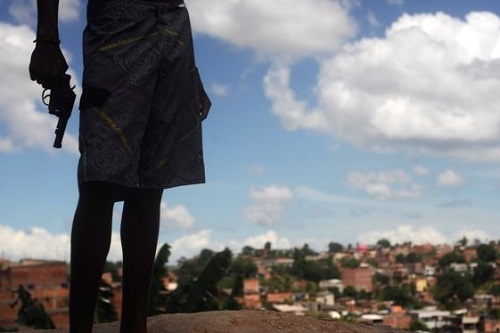Reuters photo
By
Ricardo Swire
Patterns have outlined a turbulent 2019 for national security and law enforcement officials in Latin American and neighbouring Caribbean. Regional political powers have not yet demonstrated a strong collective approach to transnational organized crime. In the past five years Latin America’s bilateral and international cooperation diminished, while criminal dynamics quickened pace. Within the sector Bolivia and Peru joined forces to dismantle connecting cocaine air bridges.
Brazil, Colombia and Ecuador routinely exchanged intelligence. Such Colombian agencies did not communicate with Venezuelan counterparts. The continuous political, economic and social crisis in Caracas overwhelmed the Organization of American States (OAS) and Union of South American Nations (UNASUR) to become priorities. Governments in Central America’s Northern Triangle continue to utilize variations of antiquated militarized countermeasures.
El Salvador, Guatemala and Honduras rated the “most violent region” worldwide. The Colombian government’s proclaimed “get tough” security policy did not include any blueprint to combat cocaine production’s increase to more than fourteen hundred tons annually. There is absence of a contingency plan to tackle Colombia’s growing rebel dissident element. The sophistication of criminality is exemplified by formal investigations of five Peruvian ex-presidents, several vice-presidents and former government officials. Argentina, Brazil, Colombia, El Salvador, Mexico, Haiti and Panama accommodate past or present presidents investigated for corruption.
With Andean nations’ cocaine prices pegged at between US$2,000 and US$3,000 per ounce, major traffickers will continue to record US$5 billion revenues. Mexico’s political directorate recently introduced the formation of a unique “National Guard.” The Unit, comprised of Federal Police and Army personnel managed by the Ministry of Defence, is tasked with confronting domestic organized crime. The novel National Guard formalizes a permanent military role in Mexico’s crime fighting and domestic security.
Originally imported synthetic drugs from China are now produced in Colombia and Mexico. Extortion, human trafficking and Illegal mining are growing concerns especially gold, copper, coltan, tin and tungsten. Bolivia, Brazil, Ecuador, Guyana, Peru and Venezuela’s economies benefit significantly from the gold business. Colombian gold mining alone earns more than US$2 billion annually.
Ricardo Swire
Ricardo Swire is the Principal Consultant at R-L-H Security Consultants & Business Support Services and writes on a number of important issues.



No Comments Yet!
You can be first to comment this post!